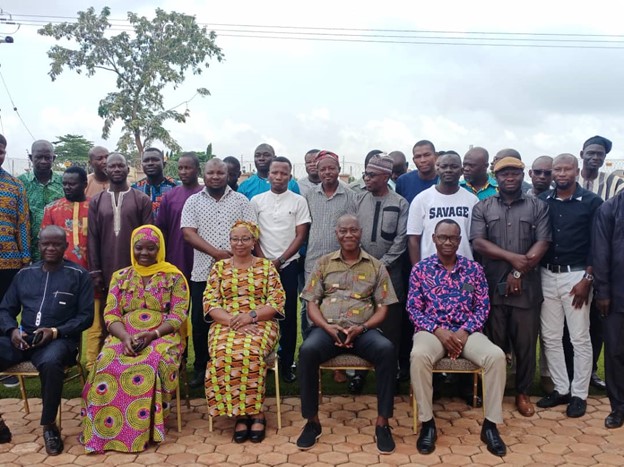Dr. Angela Lusigi, Ghana Country Representative of the United Nations Development Programme (UNDP), has praised the Integrated Assembly Financing Framework (IAFF) for its role in developing revenue improvement action plans and medium-term strategies in a significant development for Metropolitan, Municipal, and District Assemblies (MMDAs).
The IAFF proved instrumental in assisting six selected MMDAs across six regions in the country in enhancing their revenue generation efforts, which had been severely affected during the COVID-19 pandemic outbreak. Dr. Lusigi expressed her appreciation during a one-day stakeholder’s workshop held in Tamale, Northern Region.
The workshop’s primary objective was to share expertise and insights gained during the implementation of the IAFF programme, specifically in internal revenue generation, challenges faced, and potential opportunities. The COVID-19 pandemic’s impact on businesses led to a decline in revenue mobilisation for MMDAs, hindering their ability to provide essential services – such as healthcare, education, water, sanitation, and infrastructure development.
In response to this situation, the NDPC, Ministry of Finance, and UNDP collaborated to conduct a diagnostic assessment of six selected MMDAs’ performance in revenue generation from 2021 to 2022. The outcomes of these assessments culminated in the implementation of the IAFF in the pilot MMDAs.
The IAFF initiative resulted in the creation of tailor-made training modules and valuable lessons learned. The NDPC intends to share this knowledge across all MMDAs in the six regions covered by the pilot programme. Dr. Lusigi emphasised that unlocking innovative financing for local development also involves engaging the diaspora community to attract investments, and UNDP actively supports establishing a dedicated diaspora support platform for this purpose.
Improved revenue streams from property taxes, government services, and other sources will enable increased investments in critical development projects, including waste management facilities, clean drinking water access in rural areas, and strengthened school and health infrastructure.
Northern Regional Minister Shani Alhassan Shaibu acknowledged that the funds allocated from the central government to MMDAs are insufficient to meet the growing needs of the people, given the fast-growing population and demographic factors. He stressed the importance of MMDAs exploring local funding sources to supplement government releases.
Jonathan Azaasu, Senior Technical Advisor to the Director-General of NDPC, highlighted that the Internally Generated Funds (IGF) of most MMDAs dropped significantly from 12.44 percent to 1.49 percent in 2020 due to business closures during the COVID-19 pandemic. The workshop aimed to build MMDAs’ resilience for potential future challenges and to improve their IGF to better serve citizens and enhance living standards.
Azaasu encouraged MMDAs to adopt the recommendations of the IAFF pilot programme to bolster their revenue generation efforts, thereby fulfilling the development aspirations of the citizens.
The training conducted during the workshop is expected to empower MMDAs to become self-reliant and reduce their dependence on central government funding in the future. The hope is that this shift will pave the way for a more sustainable and prosperous future for all citizens.










